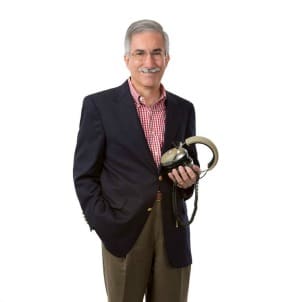
We hear them every day, well we sort of hear them. Those disclaimers at the end of the automotive commercials, some that are read so fast or so low nobody can really understand them. Do they have to be run? Should listeners be able to understand them? We sent those questions to broadcast attorney John Garziglia.
Disclaimers are the government mandated broadcast of facts about a product or service in an attempt to keep the sell message from being deceptive.
For radio station owners and management, the important thing to know is that the FCC does not regulate disclaimers. Specifically, the FCC does not take action against radio stations for deficient disclaimers. Rather, disclaimer enforcement falls to the FTC whose primary focus is the advertiser and advertising agency, not the radio station.
The FCC’s publication “The Public and Broadcasting: How to Get the Most Service from Your Local Station”, which every station must under the FCC’s local public file rules keep in the local public file, states that “the Federal Trade Commission has primary responsibility for determining whether an advertisement is false or deceptive and for taking action against the sponsor. The Food and Drug Administration has primary responsibility for the safety of food and drug products.” In other words, the FCC does not really involve itself in the area of disclaimers.
But, broadcasters need to be cognizant of serving the public interest. An allegation at license renewal time that a broadcast station consistently or knowingly ran false and misleading advertisements could cause the FCC to take a closer look at a broadcast station’s license renewal application. Even so, there are few if any recent cases where the FCC has taken action against a radio station based upon the false or misleading content of spot advertising. Rather, the areas in which the FCC does get involved are a failure of sponsorship identification, and the running of commercial advertisements by non-commercial educational stations, both of which are entirely different issues. In recent high-profile cases of misleading financial product or drug advertising, it was not the FCC but either the FTC or FDA going after an advertiser or a radio personality who became a spokesperson for a questionable product.
The FTC disclaimer rules include the 900 Number Rule, the Truth in Lending Act, and the Consumer Leasing Act, all of which have specific requirements that certain information must be “clearly and conspicuously” disclosed. The FTC states that “when the disclosure of qualifying information is necessary to prevent an ad from being deceptive, the information should be presented clearly and conspicuously so that consumers can actually notice and understand it.” The FTC often takes action when a disclaimer or disclosure is hard for consumers to understand.
There is no question but that lengthy disclaimers and disclosures make for lousy advertising copy and creative. Even though disclaimers may be mumble mouthed, speeded-up, processed or unintelligible, making compliant disclosures is generally the advertiser’s, not the radio station’s, burden. That being said, if a station becomes aware of a patently false ad for a commercial product or service, it should think twice about running it, not only to protect its own good will with its listening audience, but also so as to continue abiding by that nebulous but important FCC standard of serving the public interest.
John F. Garziglia is a Communications Law Attorney with Womble Carlyle Sandridge & Rice in Washington, DC and can be reached at (202) 857-4455 or [email protected]. Have a question for our “Ask The Attorney” feature? Send to [email protected].







